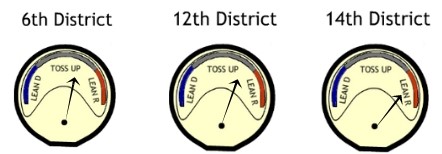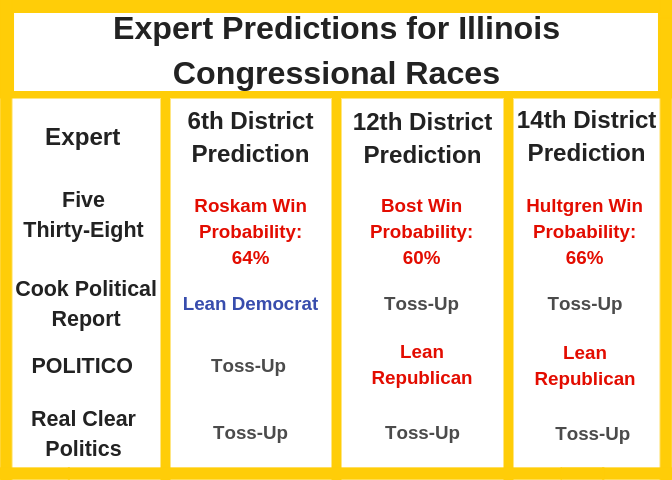October 16, 2018
Contact: Alisa Kaplan - alisa@reformforillinois - 312-436-1274

Third Quarter Campaign Finance Report:
The Final Stretch to Election 2018
With the midterm elections less than a month away, candidates up and down the ballot have been focused on pulling in enough cash to pay for pricey political ads and voter outreach operations. Fundraising and spending details were made public in reports due on Monday, October 15, for the quarter covering July 1 to September 30. Reform for Illinois’ team analyzed the financial reports for some of the state’s most watched races.
Illinois Governor
Turn on the TV or radio or surf the Web, and you will likely see or hear a J.B. Pritzker ad. Given Pritzker’s massive self-funded advertising budget, nobody in the Land of Lincoln can escape the Democratic gubernatorial candidate’s talking points. Voters have also probably noticed an increasing number of ads in the mail and across the airwaves for local candidates. Pritzker and his Republican opponent, Gov. Bruce Rauner, are the indirect source of many of those as well.
Advertising and party building are the two main expenses for Pritzker and Rauner. The candidates’ wealth makes them a major factor in races across the state.
Read a full analysis of the fundraising and spending in the gubernatorial race by clicking the chart below.
Chicago Mayor
Mayor Rahm Emanuel’s early September announcement that he would not seek re-election sent shockwaves through Chicago politics and spurred new candidates to enter the contest. Shortly after the announcement, Bill Daley, the son and brother of two former Chicago mayors; Toni Preckwinkle, Cook County Board president; and Gery Chico, former Chicago Public Schools board president, all declared their candidacy.
As the third largest city in the country, the Chicago mayoral race represents a campaign to lead a population larger than 15 states and preside over a city government with an $8.6 billion budget. The position has drawn campaign contributors from across the country vying to influence this important position. So far, more than $5 million has been raised by 12 declared candidates.
Read a full analysis of the fundraising and spending in the mayoral race by clicking the chart below.
Illinois Attorney General
The race for attorney general has seen large fundraising figures and more media attention following incumbent Lisa Madigan’s September 2017 decision not to seek a fifth term. Since the election of President Donald Trump, Democratic state attorneys general, including Madigan, have increased their role on the national stage, in part by suing the federal government to challenge Republican policies.
As a result, this race may be viewed as pivotal to either party’s ability to influence national events from Illinois. Democratic state Sen. Kwame Raoul and Republican attorney Erika Harold garnered considerable financial support from various sources, including their respective party’s gubernatorial candidates.
Read a full analysis of the fundraising and spending in the attorney general race by clicking the chart below.
Illinois Congressional Delegation

Democrats are hoping for a “blue wave” to retake the U.S. House of Representatives. Currently, Republicans control the House 235 to 193, and Democrats are targeting key GOP-held districts in Illinois as potential flips in November. Three of the district races drawing significant spending are the northwest suburban 6th, the southwestern downstate 12th, and the exurban 14th.
Last week, the Cook Political Report ranked U.S. Rep. Peter Roskam’s 6th District as “Leans Democrat” and deemed U.S. Rep. Mike Bost’s 12th District and U.S. Rep. Randy Hultgren’s 14th District to be “Toss-Ups.” While other analysts are slightly more optimistic about Republican chances, these seats have garnered enough national attention to draw a recent campaign visit by Vice President Mike Pence. Read about these races here.



